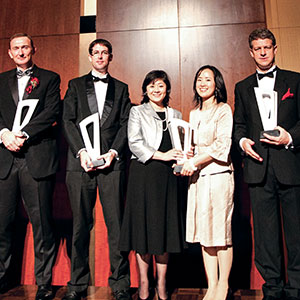As I write this, the year is slowly winding down, and by the time you read it we will be in a new year. So this is a good time to take stock; to look back on 2016 and to look forward to 2017, the Year of the Rooster.
Last year was not short on surprises, the UK’s decision in the June referendum to leave the EU being perhaps the first most newsworthy one of these. I was in the UK in the weeks before the referendum and found it odd to meet so many people who said they were voting to leave: “Of course, we won’t win”, they said, “but we’re voting to leave anyway.”
It was clearly a protest vote, immigration being one of the most often cited reasons, along with the much debated—and disputed—cost to the UK of belonging to the Union. The benefits of belonging for many in Britain were conveniently ignored. There was much disinformation on both sides of the debate, but it appeared right to the very last moment that, though it was a close call, the remainers would prevail.
And when the final result was in, it was immediately clear that those leading the leave campaign had not really thought through the consequences of their determination. There was an immediate sense of “what now?” Six months on, the debate still rages, with many calling for a further vote and some demanding that the result of the referendum be over-ruled.
The entire issue of Brexit remains confusing to a great many people. There are dozens of questions left unanswered and others—some would say—are unanswerable, including what the final exit bill will be. Some have suggested £50 billion. But there are yet further questions. What happens, for example, to the thousands of UK citizens who have bought property in Spain and France, to name just two favourite places to retire. Likewise, what of the thousands of EU citizens who now live and work in the UK?
Business, too, raises questions. We do not know the details of what deal was made to persuade Nissan Motor Co., Ltd. to make a large new—and welcome—investment in the UK, but other Japanese investors are looking on nervously. And there is a serious risk that some will move their operations to other countries once the UK triggers Article 50, which starts the countdown to Britain’s withdrawal from the EU.
Prime Minister Theresa May appears confident that she can do this in March. What will follow is anyone’s guess, but it is sure there will be more surprises to come as the Brexit story unfolds.
The other major surprise of 2016 was, of course, the US election. After a sometimes ugly and most unpleasant campaign, Donald Trump won the electoral college vote, though his rival, Hillary Clinton, won the popular vote by a record 2.9 million.
At the beginning of the campaign, Trump was seen as a joke, and during the campaign he certainly did his best to give the media plenty of ammunition to support the view that he was an unworthy candidate. But here again, it appears a protest vote has won the day. People are tired. They long for change. With Trump they are going to get it. The question is, will they like what they get? Much of what Trump promised during the election campaign is unlikely to find its way through to action and already he has backtracked on a number of issues.
Still, we must wonder what his presidency means for ties with both the UK and Japan. His suggestion that Nigel Farage, a former leader of the UK Independence Party, would make a good British Ambassador to Washington may raise a laugh or an eyebrow or two, but his recent comments on China, together with his call with Tsai Ing-wen, president of Taiwan, do not bode well for Asia. Japan will be watching carefully, especially with regard to his comments on nuclear weapons and his apparently warm relations with Russia’s President Vladimir Putin.
We can only hope that the surprises of 2017—and there are bound to be some—are less shocking than those of 2016.







